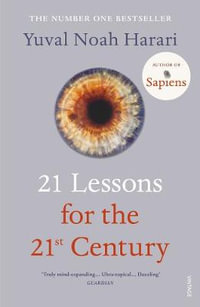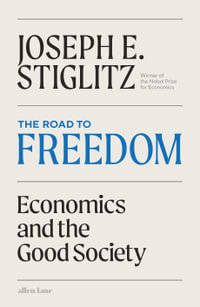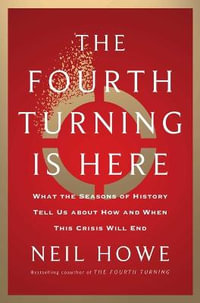
Pakistan's Pathway to the Bomb
Ambitions, Politics, and Rivalries
By: Mansoor Ahmed
Paperback | 1 May 2022
At a Glance
Paperback
RRP $86.99
$74.50
14%OFF
Aims to ship in 5 to 10 business days
When will this arrive by?
Enter delivery postcode to estimate
Pakistan's pathway to developing nuclear weapons remains shrouded in mystery and surrounded by misconceptions. While it is no secret why Pakistan became a nuclear power, how Pakistan became a nuclear state has been obscured by mythmaking.
In Pakistan's Pathway to the Bomb, Mansoor Ahmed offers a revisionist history of Pakistan's nuclear program and the bureaucratic politics that shaped its development from its inception in 1956 until the 1998 nuclear tests. Drawing on elite interviews and previously untapped primary sources, Ahmed offers a fresh assessment of the actual and perceived roles and contributions of the scientists and engineers who led the nuclear program. He shows how personal ambitions and politics within Pakistan's strategic enclave generated inter-laboratory competition in the nuclear establishment, which determined nuclear choices for the country for more than two decades. It also produced unexpected consequences such as illicit proliferation to other countries largely outside of the Pakistani state's control.
As Pakistan's nuclear deterrent program continues to grow, Pakistan's Pathway to the Bomb provides fresh insights into how this nuclear power has evolved in the past and where it stands today. Scholars and students of security studies, Pakistani history, and nuclear proliferation will find this book to be invaluable to their understanding of the country's nuclear program, policies, and posture.
About the Author
Mansoor Ahmed is a senior fellow at the Center for International Strategic Studies in Islamabad, Pakistan. He is a former Stanton Nuclear Security junior faculty fellow (2015-16) and postdoctoral research fellow (2016-18) with the International Security Program and Managing the Atom project at the Harvard Kennedy School's Belfer Center. He also served as a lecturer in the Department of Defense and Strategic Studies, Quaid-i-Azam University, Islamabad, from 2011-15.
Industry Reviews
The book is an important contribution to the academic literature on Pakistan's nuclear history. It disproves the widespread myths surrounding Pakistan's highly secretive nuclear project that have made it difficult to separate facts from fiction. Leveraging a range of previously unseen primary sources, Ahmed puts various conflicting historical events into welcome perspective. * International Affairs *
Mansoor Ahmed's book, while purposefully pertaining to the realm of security and strategic studies, is a valuable contribution to the historical knowledge of Pakistan's nuclear programme. * Cold War History *
Pakistan's Pathway to the Bomb offers a riveting new account that puts together some of the missing pieces in Pakistan's nuclear journey. Ahmed's work provides a compelling counter-narrative to various popular yet inaccurate beliefs. * International Affairs *
In this excellent book, Ahmed challenges conventional wisdom about the evolution of Pakistan's nuclear program, arguing that the country's "nuclear elite" was already pursuing dual-use latent nuclear weapon capabilities in the 1960s, long before India's 1974 nuclear test. Using primary and secondary sources, numerous interviews, and previously unseen documents, Ahmed describes in painstaking detail the intricate bureaucratic politics and changing coalitions shaping Pakistan's path to developing nuclear weapons capability before the May 1998 nuclear tests. * Choice *
Ahmed's book should replace or complement the classic books on Pakistan's nuclear program. It serves as a reminder of how much of the world's nuclear story remains locked away in inaccessible memories and archives and how much of it may be obscured by intentional mythmaking. * Binding Hook *
Ahmed argues that while security drivers do explain why Pakistan went nuclear, they do not help us describe the pathways it traversed to do the needful. The author has used a good mix of primary and secondary sources to make his work a gripping read. His focus on untangling the politics within Pakistan's nuclear enterprise has added to the scholarly mix of the hitherto understudied aspects of the country's biggest success story. One big lesson from this book for nuclear watchers is that individuals play a far greater role in shaping trajectories of nuclear states, and Pakistan is no exception.World * Journal of Contemporary Studies *
Ahmed's research-laden work compellingly speaks to the impacts of rivalries and competitions within Pakistan's nuclear elites on the country's approach towards its nuclear program. * Journal of Contemporary Studies *
ISBN: 9781647122317
ISBN-10: 1647122317
Series: South Asia in World Affairs series
Published: 1st May 2022
Format: Paperback
Language: English
Number of Pages: 304
Audience: Professional and Scholarly
Publisher: GEORGETOWN UNIVERSITY PRESS
Country of Publication: GB
Dimensions (cm): 22.8 x 15.4 x 2.1
Weight (kg): 0.43
Shipping
| Standard Shipping | Express Shipping | |
|---|---|---|
| Metro postcodes: | $9.99 | $14.95 |
| Regional postcodes: | $9.99 | $14.95 |
| Rural postcodes: | $9.99 | $14.95 |
How to return your order
At Booktopia, we offer hassle-free returns in accordance with our returns policy. If you wish to return an item, please get in touch with Booktopia Customer Care.
Additional postage charges may be applicable.
Defective items
If there is a problem with any of the items received for your order then the Booktopia Customer Care team is ready to assist you.
For more info please visit our Help Centre.
You Can Find This Book In
This product is categorised by
- Non-FictionPolitics & GovernmentInternational Relations
- Non-FictionHistoryRegional & National HistoryAsian History
- Non-FictionEngineering & TechnologyOther Technologies & Applied SciencesMilitary Engineering
- Non-FictionPolitics & GovernmentPolitical Science & Theory
- Non-FictionWarfare & DefenceWeapons & EquipmentNuclear Weapons























